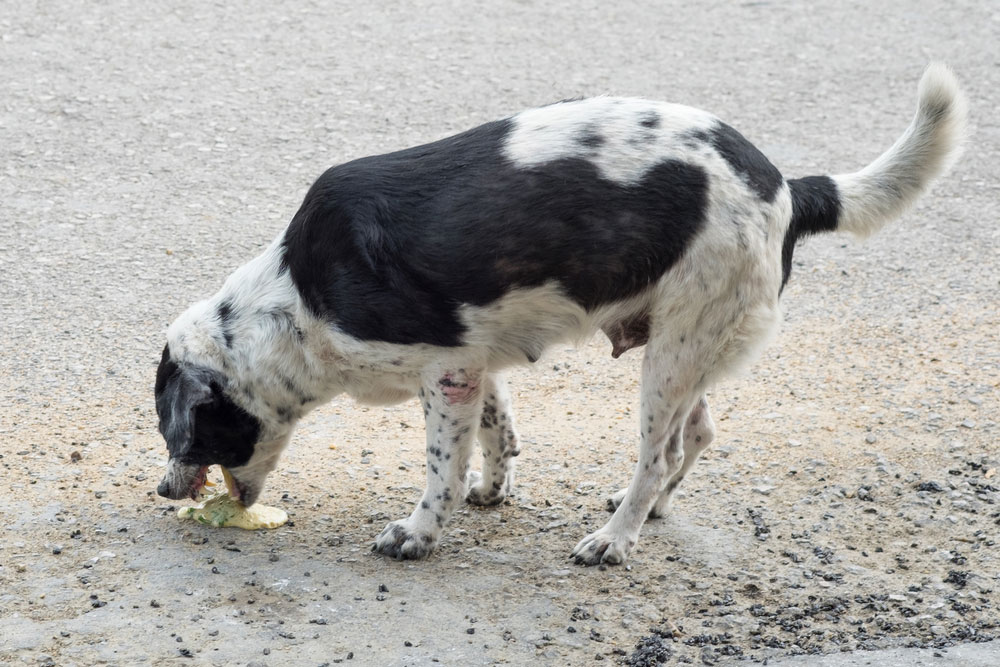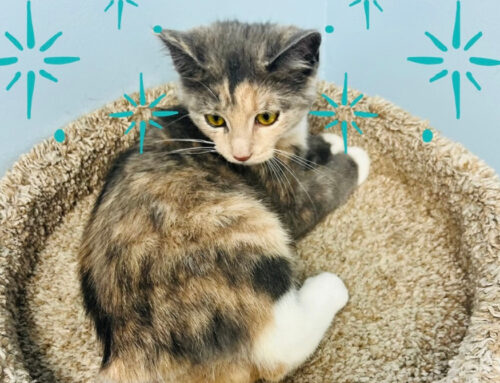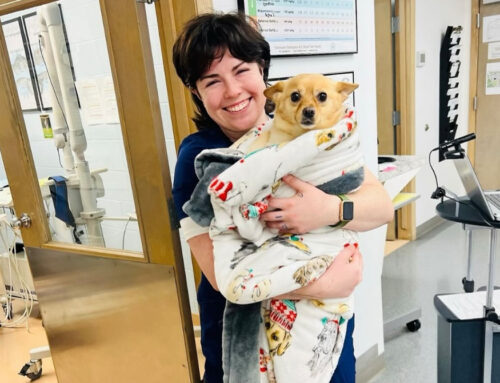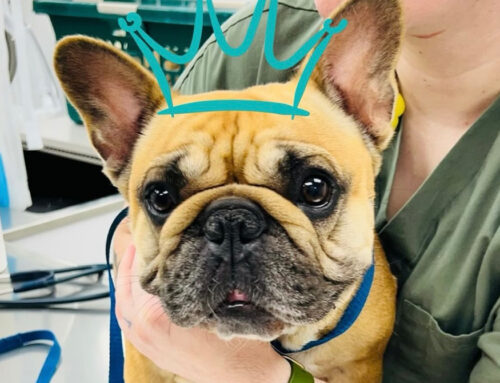As pet owners, our animals are beloved family members, whether they are dogs, cats, rabbits, birds, reptiles, or other exotic species. It can be terrifying to see them in distress and not know what to do. In emergencies, recognizing critical signs and acting quickly can make the difference between life and death.
At Montgomery Animal Hospital, we’re dedicated to guiding you through understanding the symptoms of pet emergencies, how to respond, and what makes immediate care so important. This comprehensive guide will help you identify when it’s time to seek urgent veterinary care and what steps to take.
What is a Pet Emergency?
A pet emergency is any unexpected injury, illness, or condition that requires immediate medical attention. Some issues, such as vomiting or limping, may seem minor at first but can quickly escalate. Recognizing the difference between minor concerns and life-threatening emergencies is essential to your pet’s well-being.
Examples of Common Emergencies:
- Difficulty breathing
- Traumatic injuries (e.g., broken bones or deep wounds)
- Ingestion of toxins or foreign objects
- Seizures or loss of consciousness
- Sudden collapse or severe lethargy
- Persistent vomiting, diarrhea, or inability to urinate
Exotic pets, like birds and reptiles, are especially vulnerable because they often hide signs of illness. By the time symptoms appear, the condition may be critical.
Signs Your Pet Needs Emergency Vet Care
1. Difficulty Breathing
Respiratory distress is one of the most serious emergencies for pets. If your pet is struggling to breathe, panting excessively, or their gums appear blue or pale, it’s time to act immediately.
Potential Causes in Small Animals:
- Airway Obstruction: Foreign objects lodged in the throat, like bones or toys, can cause choking.
- Heart Disease: Congestive heart failure can lead to fluid buildup in the lungs, especially in aging dogs and cats.
- Pneumonia or Lung Infections: Bacterial or viral infections can make breathing difficult.
Exotic Pet Considerations:
- Birds: Tail bobbing, open-mouth breathing, or fluffed feathers are signs of respiratory distress. Birds have sensitive air sacs, and even mild respiratory infections can escalate quickly.
- Reptiles: Bubbling from the nose, wheezing, and lethargy often indicate a respiratory infection, frequently caused by improper humidity or temperature.
Immediate Steps:
- Keep your pet calm and quiet to reduce their stress.
- Avoid forcing anything into their mouth.
- Transport them safely to the nearest emergency vet.
2. Severe Injuries or Bleeding
Traumatic injuries require immediate intervention to prevent excessive blood loss, infection, or internal damage.
Signs to Watch For:
- Bleeding that doesn’t stop within 5 minutes
- Limping, swelling, or inability to bear weight
- Deep cuts, wounds, or visible bones
Common Causes:
- Car accidents (hit-by-car injuries)
- Falls from heights
- Fights with other animals
- Sharp objects causing lacerations
For Exotic Pets:
- Rabbits and small mammals have fragile bones and can suffer fractures even from minor falls.
- Birds and reptiles may experience bleeding if their claws, beaks, or scales are damaged.
Immediate Steps:
- Apply pressure to bleeding wounds using clean gauze or cloth.
- Immobilize broken limbs if possible.
- Avoid moving your pet unnecessarily and seek emergency care immediately.
3. Ingestion of Toxins
Toxic substances pose life-threatening risks to pets. Many household items, plants, and human foods are dangerous when ingested.
Common Toxins in Dogs and Cats:
- Foods: Chocolate, grapes, raisins, onions, garlic, and xylitol (a sugar substitute)
- Chemicals: Antifreeze, household cleaners, and rodenticides
- Plants: Lilies (toxic to cats), sago palms, and poinsettias
Exotics and Toxins:
- Birds: Avocado, chocolate, and fumes from nonstick cookware (Teflon) are toxic.
- Reptiles: Ingesting improper substrates, like sand or gravel, can cause blockages.
Signs of Poisoning:
- Vomiting and drooling
- Tremors or seizures
- Difficulty breathing
- Lethargy or collapse

Immediate Steps:
- Contact your veterinarian or the Pet Poison Helpline.
- Do not induce vomiting unless instructed by a vet.
- Bring any packaging or labels of the toxin to the clinic for proper treatment.
4. Persistent Vomiting, Diarrhea, or Inability to Urinate
While a single episode of vomiting or diarrhea may seem minor, persistent issues can quickly cause dehydration and life-threatening complications.
Potential Causes:
- Gastrointestinal Obstructions: Foreign objects (e.g., toys, bones) can block the digestive tract.
- Kidney or Bladder Issues: Urinary obstructions, common in male cats, can cause severe pain and kidney failure.
- Parasites or Infections: Intestinal worms, bacterial infections, or viruses like parvovirus.
For Exotic Pets:
- Gastrointestinal stasis (GI stasis) in rabbits is an emergency. Signs include no stool production, lethargy, and decreased appetite.
- Birds may regurgitate food due to illness or stress, but repeated vomiting warrants immediate care.
5. Seizures, Collapse, or Sudden Weakness
Seizures, sudden collapse, or extreme weakness can indicate a range of critical conditions, including neurological disorders, toxin exposure, or organ failure.
Signs of a Seizure:
- Tremors or convulsions
- Loss of consciousness
- Excessive drooling or paddling movements
Underlying Causes:
- Epilepsy
- Low blood sugar (common in small dogs and ferrets)
- Toxic ingestion or liver disease
What to Do:
- Keep your pet safe by moving objects out of their way.
- Time the seizure and note its duration.
- Transport them to the vet immediately after the seizure stops.
Why Choose Montgomery Animal Hospital for Emergency Care?
At Montgomery Animal Hospital, we combine compassion, expertise, and advanced technology to provide exceptional emergency care.
- AAHA-Accredited: Learn About Our Accreditation and how it ensures the highest level of care.
- Exotic Pet Expertise: We care for dogs, cats, birds, reptiles, and small mammals.
- State-of-the-Art Facilities: From digital imaging to surgical suites, we’re fully equipped for emergencies.
Meet Our Team to learn more about our skilled veterinarians who care for your pets like family.
Prepare for Emergencies Today
The best way to protect your pet is to be prepared. Keep an emergency kit, know the nearest emergency clinics, and stay informed about your pet’s health.
For immediate or after-hours care, call Montgomery Animal Hospital or one of our trusted emergency partners:
- Veterinary Emergency Group: (513) 802-9137, or choose to be transferred to VEG by selecting the option when calling us after-hours.
- MedVet: (513) 561-0069
- A.R.E. Center: (513) 530-0911
Schedule a Wellness Exam today to help prevent emergencies and ensure your pet’s ongoing health.
Conclusion: Your Pet Deserves the Best Care
Emergencies can happen to any pet, at any time. By recognizing the signs of a crisis and acting quickly, you’re giving your pet the best chance at recovery. At Montgomery Animal Hospital, we’re here to guide you every step of the way—because your pet’s health is our top priority.
If you’re ever unsure about your pet’s condition, don’t hesitate to Contact Us or visit us for compassionate, professional care.








Leave A Comment